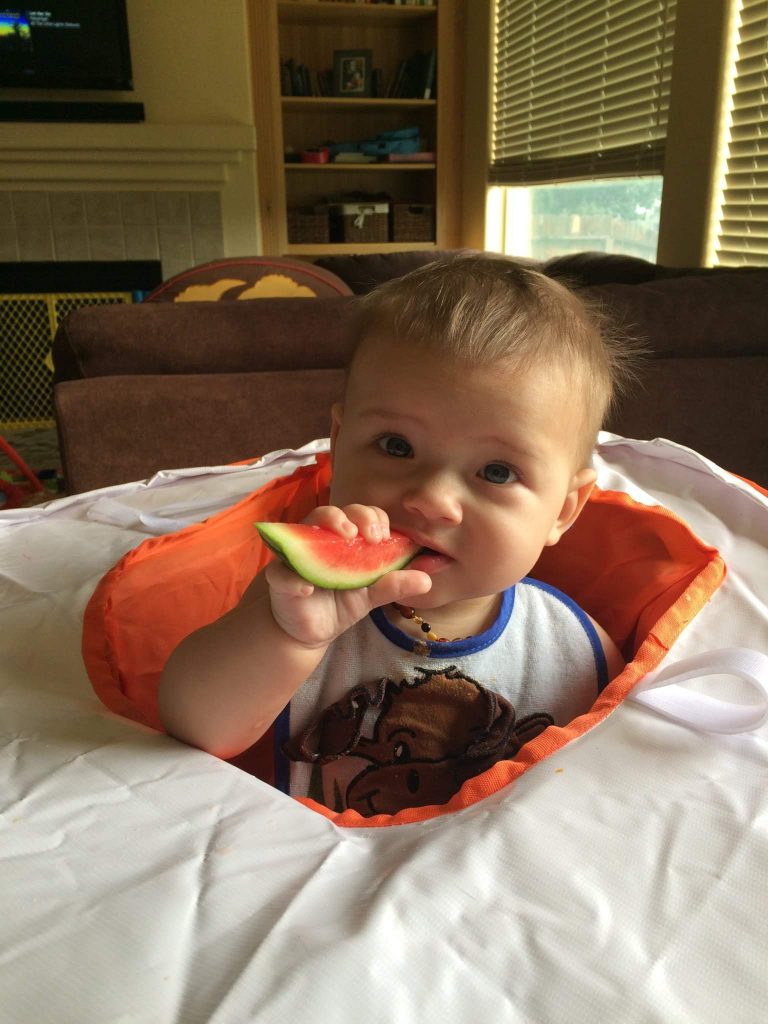Early Intervention (EI) is a holistic, multidisciplinary, approach to a child’s health in their first 3 years of life. Early intervention providers help children (and their families) who have a developmental or growth delay, or who are at risk of experiencing challenges in their overall development.
As a pediatric dietitian and expert in family nutrition, I am thrilled to share with you the incredible world of Early Intervention (EI). Not only did I spend 8 years learning and honing my skill as a peds dietitian… it’s an invaluable tool many communities have and it isn’t often talked about!
And also – if your child is 3, or under, I do recommend getting your child evaluated by your local EI program prior to joining me in one of my coaching programs.
Pssst – if you HAVE had your child evaluated, and they don’t qualify (or you feel you need additional support) – apply HERE to work with me! I’d love to help empower you to raise a healthy family no matter your challenges.
Okay, let’s dive in to the amazing support system that Early Intervention can provide! From physical therapy to nutrition therapy, genetics to special instruction, the potential outcomes that can help (and have helped) so many families and futures.
👥 Who can Early Intervention help?
Early Intervention is designed to assist children from birth to age three (some states go up to 5 years old) who may have developmental delays or disabilities, or who are at risk of experiencing challenges in their overall development. This includes children who have been diagnosed with specific conditions, such as Down syndrome or cerebral palsy, as well as those who were born prematurely. This also includes those who may not have a formal diagnosis but display developmental concerns.
Sometimes, finding answers can be the hardest part and my heart is with you if that is where you are right now.
✨ Some services offered include (but not limited to):
- Developmental Pediatrician (MD): a developmental pediatrician is a subspecialist within pediatrics, who focuses on assessing and treating children with developmental delays, disabilities, or neurodevelopmental disorders, such as autism spectrum disorders, intellectual disabilities, and learning disorders, providing specialized care to promote optimal development and address specific developmental challenges.
- Physical Therapy (PT): Physical therapists specialize in enhancing children’s gross motor skills and overall physical development. Through guided exercises and activities, PT helps improve strength, coordination, balance, and mobility.
- Speech Pathology (SLP): Speech-language pathologists focus on communication skills, including speech, language, and social communication. They support children in developing effective communication strategies, addressing speech delays or disorders, and promoting language acquisition.
- Occupational Therapy (OT): Occupational therapists aid children in developing fine motor skills, sensory integration, and the ability to perform daily activities. OT can help with skills like grasping objects, hand-eye coordination, and self-care tasks such as feeding, dressing, and grooming.
- Nutrition Therapy (RD): (woooooo, that was my job!) In EI, a registered dietitian will support families in optimizing their child’s nutritional status and overall well-being. They provide expert guidance on age-appropriate nutrition, feeding difficulties, and specialized diets. Together, with the parents, the family can learn to create healthy eating habits and address any concerns related to nutrition and growth.
- Genetics: Geneticists can assist in evaluating genetic conditions and identifying potential genetic factors contributing to developmental delays. They help families understand the genetic aspects of their child’s condition and provide valuable insights for ongoing management and support.
- Special Instruction (DS): Early childhood educators, developmental specialists, work closely with families to provide individualized instruction and learning opportunities. They focus on cognitive development, early literacy, numeracy, and adaptive skills, fostering a positive learning environment that supports each child’s unique needs.
In addition, many programs will have vision specialists, hearing evaluations and specialists, as well as case/service management.
*And you can usually get some really nice hugs and support too*
🌟 What are the benefits and possible outcomes?
Engaging in Early Intervention services offers numerous benefits that can positively impact your child’s life and future. These are only a few of them:
- Enhanced Development: Early Intervention aims to stimulate growth in all areas of development! This empowers your child to reach their full potential and achieve developmental milestones at their own pace.
- Improved Quality of Life: By addressing developmental delays or disabilities early on, EI fosters independence, confidence, and overall well-being. This enables your child to participate fully in everyday activities.
- Stronger Family Support: EI is all about “parent as the teacher” and involves a collaborative approach that actively involves everyone. By providing resources, education, and strategies, it equips parents and caregivers to better support their child’s development. This can strengthen the family bond along the way.
- Long-Term Success: The foundations laid during Early Intervention can have lasting effects. Set the stage for continued growth and future success in school, social interactions, and overall life experiences. This isn’t about “fixing” your kid. It is about learning where they are, who they are, and who you can best support them.
💡 Who Qualifies for Early Intervention?
Qualification for Early Intervention is determined by an evaluation conducted by a team of professionals, including specialists from various disciplines. Children may qualify based on specific developmental criteria, diagnosed disabilities, or risk factors identified by medical professionals or caregivers. The eligibility process varies by country and region. It is best to consult your local Early Intervention program for more information.
Most programs are FREE to the family and YOU can “self refer”.
Because you can self-refer, you don’t need to wait for your doctor to write a note! (Your doctor can absolutely refer you, but sometimes, parents think they need to wait…. and you don’t!). So, give your local EI program a call. Get your kid on the books for an evaluation (also known as an MDT) today!
Programs, like Early intervention, exist because they are a powerful tool that can transform lives. By embracing the comprehensive support of different disciplines and the diversity of thought and approach… families can unlock their child’s true potential and embark on an extraordinary journey of growth and development.
And don’t forget… if you feel you need additional support – I’m here for you.


